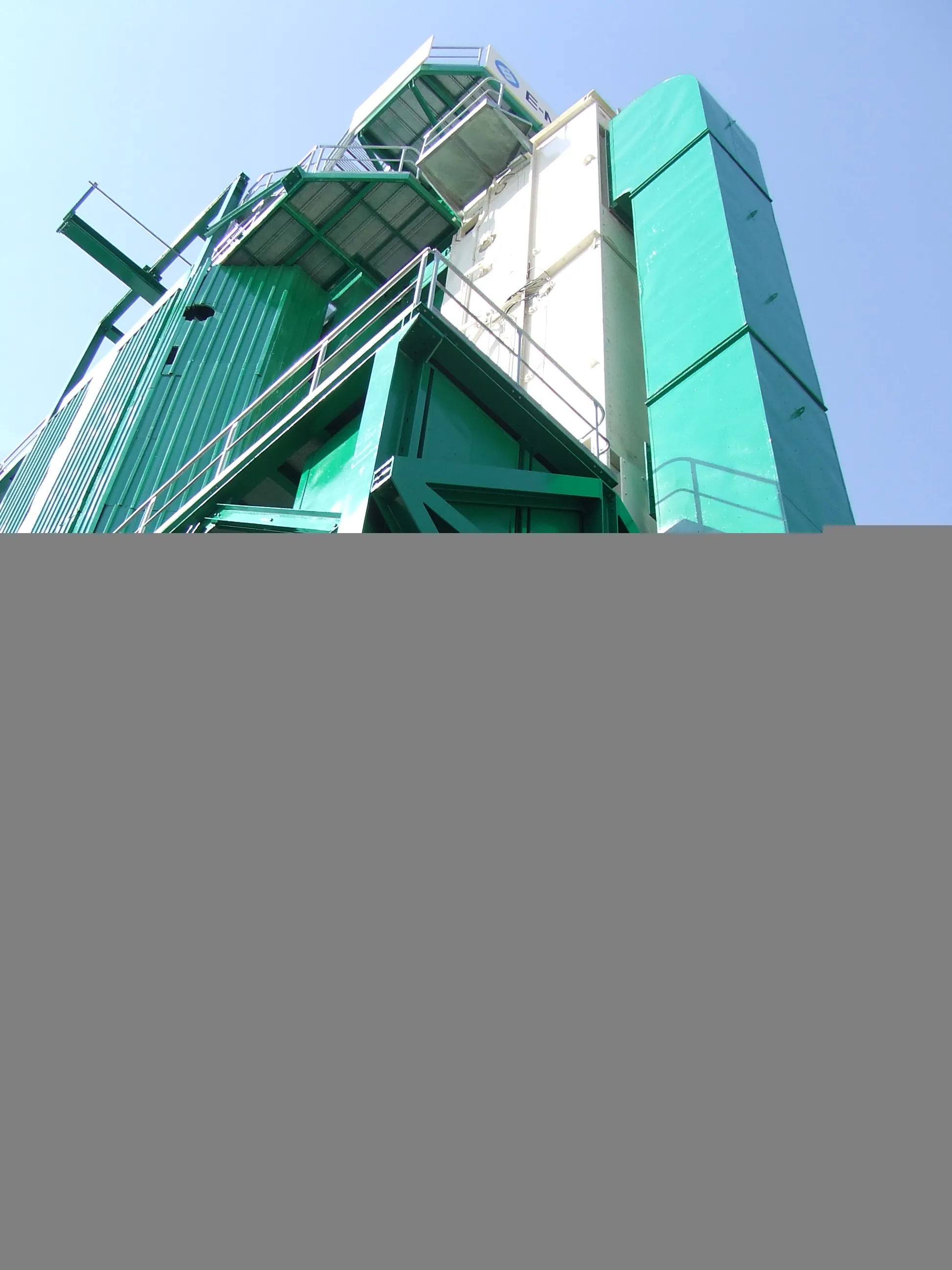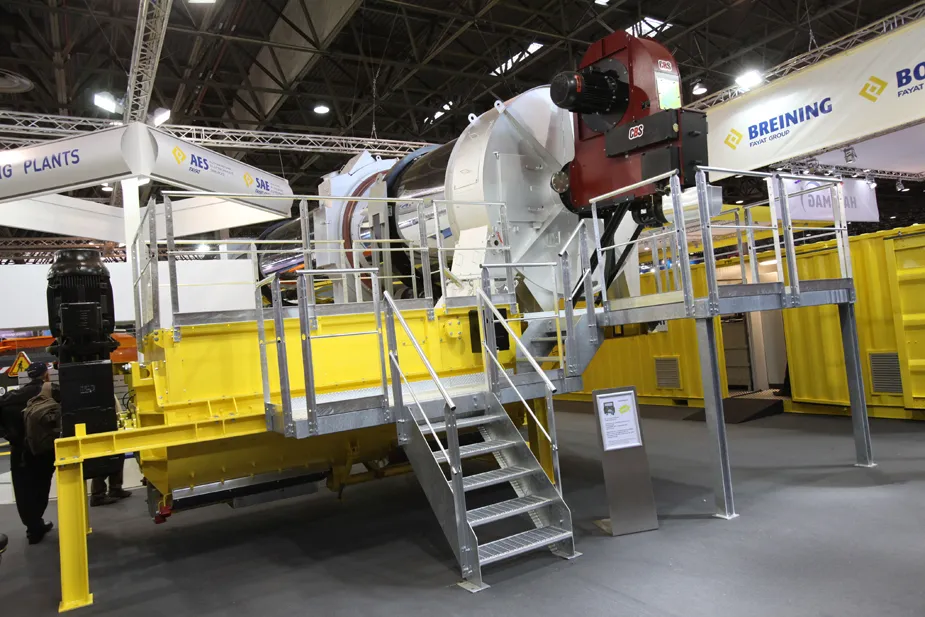Turkish asphalt plant specialist E-Mak is supplying an innovative recycling system to a firm in Hamburg. The machine is a prototype and is still being developed, with indirect heating to ensure that the bitumen is not damaged during the recycling process. The machine uses heat generated by the burner and flows this hot air through the tower. The RAP elevator carries the material to a bin with a special valve underneath that then controls the feed quantity. Specially designed flights inside the tower increas
January 6, 2017
Read time: 2 mins

Turkish asphalt plant specialist 208 E-MAK is supplying an innovative recycling system to a firm in Hamburg.
The machine is a prototype and is still being developed, with indirect heating to ensure that the bitumen is not damaged during the recycling process.
The machine uses heat generated by the burner and flows this hot air through the tower. The RAP elevator carries the material to a bin with a special valve underneath that then controls the feed quantity.
Specially designed flights inside the tower increase the time that the material takes to descend so as to increase heat absorption. This provides additional mixing with the internal layout also minimising the risk of material sticking.
As it passes through the tower the RAP is heated to 120°C and is then mixed with the fresh aggregate, which is heated to 180°C and fed through the dryer drum.
The machine can produce 80tonne/hour of high quality asphalt and with a feed input of 35-40% RAP. The company has high hopes for this unit and believes it will allow efficient production of high quality asphalt using recycled materials.
The machine is a prototype and is still being developed, with indirect heating to ensure that the bitumen is not damaged during the recycling process.
The machine uses heat generated by the burner and flows this hot air through the tower. The RAP elevator carries the material to a bin with a special valve underneath that then controls the feed quantity.
Specially designed flights inside the tower increase the time that the material takes to descend so as to increase heat absorption. This provides additional mixing with the internal layout also minimising the risk of material sticking.
As it passes through the tower the RAP is heated to 120°C and is then mixed with the fresh aggregate, which is heated to 180°C and fed through the dryer drum.
The machine can produce 80tonne/hour of high quality asphalt and with a feed input of 35-40% RAP. The company has high hopes for this unit and believes it will allow efficient production of high quality asphalt using recycled materials.
Stand: F1.209/3
%$Linker:








